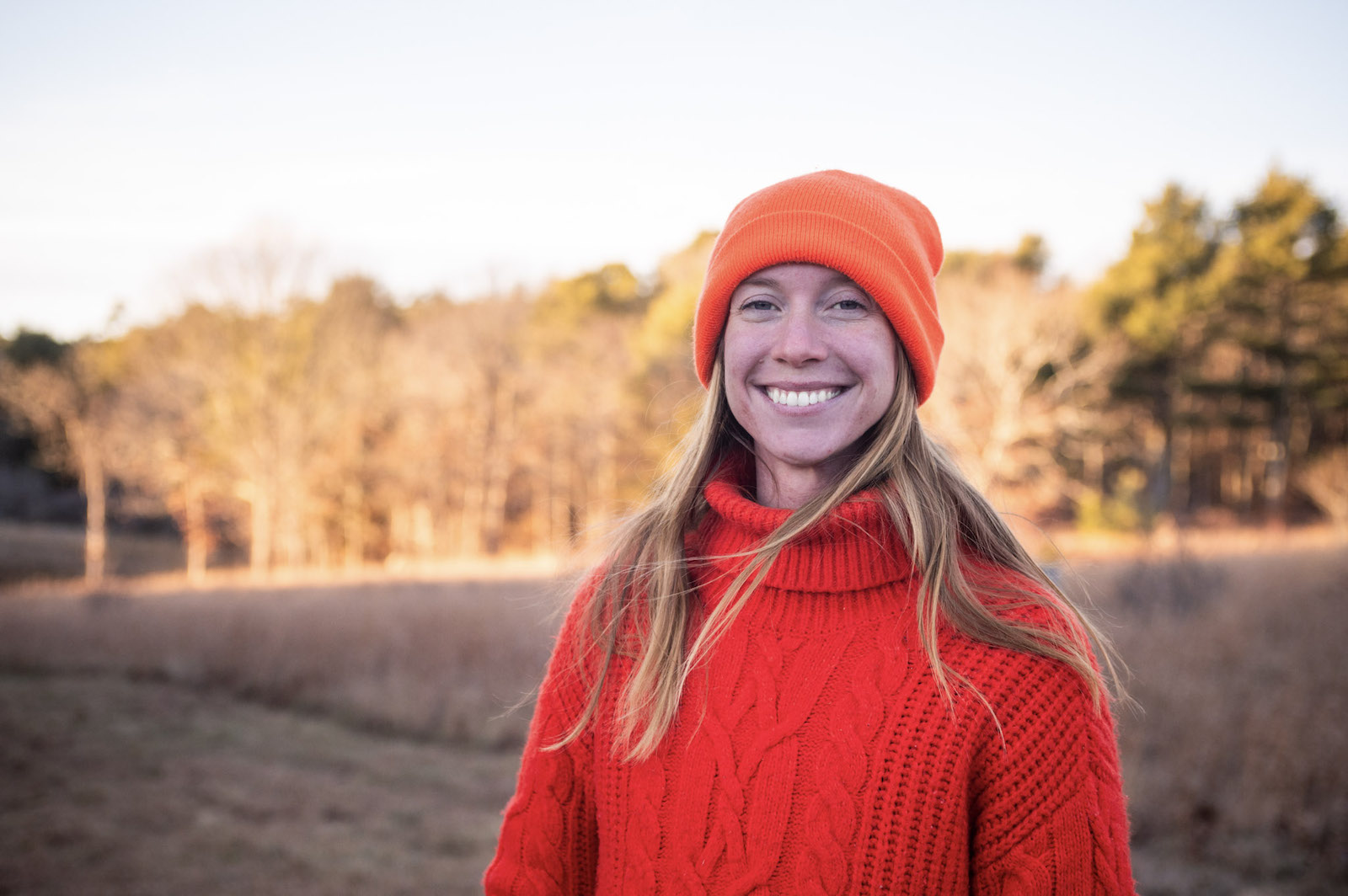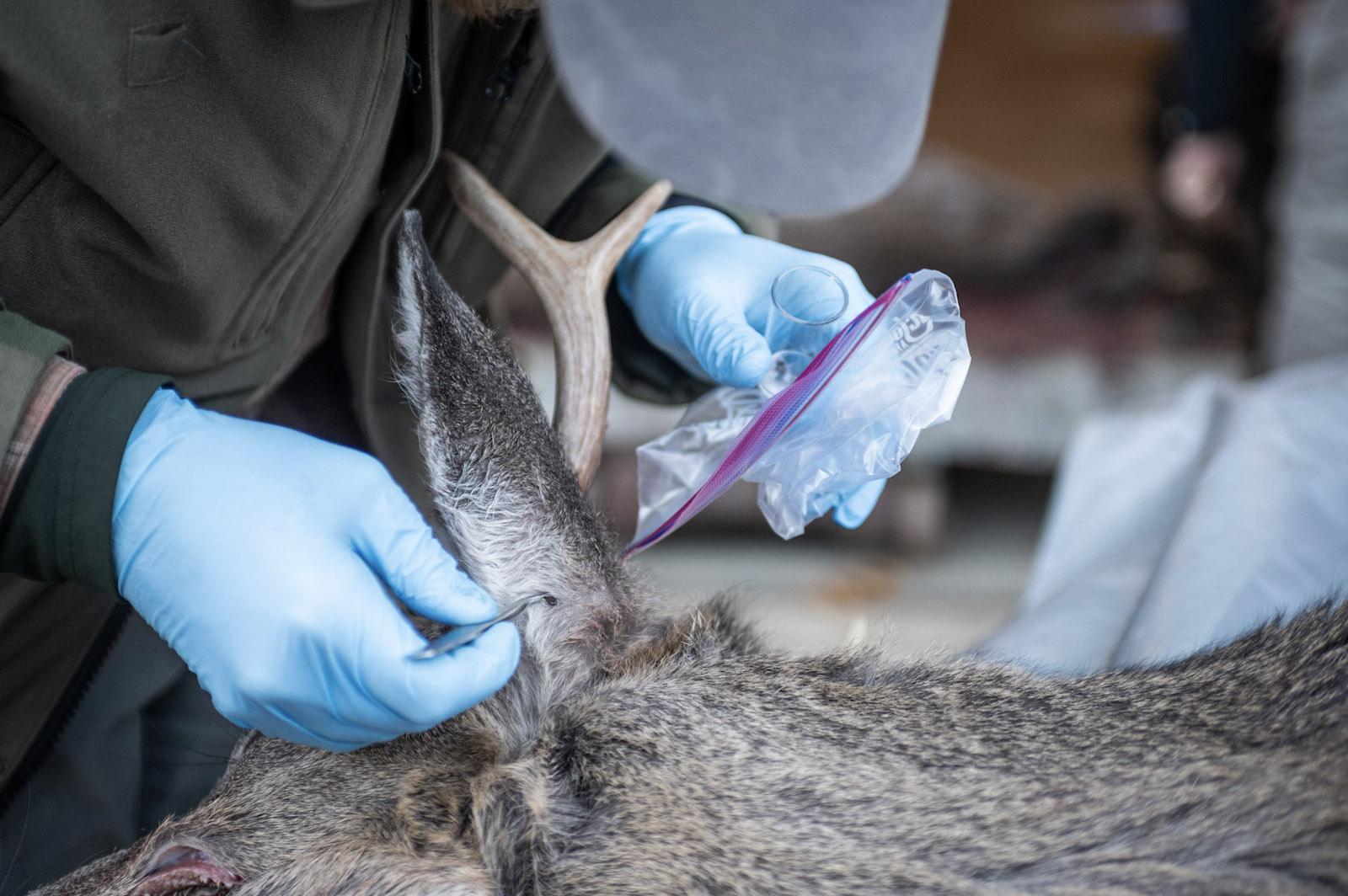As alpha-gal syndrome rapidly spreads across the Vineyard, Island public health officials are hoping to gauge the public’s concern over the meat allergy and gather important information that could aid in future research.
The Martha’s Vineyard Tick Program put out a new survey last week on alpha-gal, and the scientists behind it are especially interested in hearing from hunters. Lea Hamner, an epidemiologist with the Inter-Island Public Health Excellence Collaborative, urged people to take 10 minutes out of their day to help her and other researchers educate, prevent and support people affected by alpha-gal.
She also hoped the survey, which is anonymous, could help her design a study around hunters’ risk for alpha-gal.
“If you talk to anyone about alpha-gal syndrome on Martha’s Vineyard, they are concerned, but having some numbers would help me make pitches for programming,” Ms. Hamner said Friday at the Island’s deer check station in the state forest.
The Vineyard has already developed a relationship with one of the foremost experts in the emerging syndrome, and Ms. Hamner had floated the idea of setting up a multi-year study following hunters.
“Alpha-gal, a red meat allergy, to a hunter would be significant,” she said, as a couple of deer were checked in. “It’s not only what we eat, but it’s part of their personal identity.”
Alpha-gal first came up on the Vineyard’s radar about four years ago, after lone star ticks gained a foothold on the Island.
Researchers believe that lone star ticks carry the alpha-gal carbohydrate, something that is naturally occurring in mammalian meat. When a lone star tick bites a human, the human body can begin to make an allergic antibody that recognizes alpha-gal, giving people various allergic reactions when they come into contact with the carbohydrate again.
Islanders have reported reactions to everything from eating a steak dinner to just the smell of cooking meat. Other products, such as milk or even gelatin in medications, can cause an allergic reaction.

Ms. Hamner was at the check station to talk to hunters about the survey and hear about their experiences with the allergy.
“I have talked to a hunter who is still hunting, even though he cannot consume meat because he has alpha-gal syndrome,” she said. “But I’ve also talked to other hunters about whether they would continue hunting, and they hunt for venison so they would not continue. So there’s different motivations and interest in the sport versus food [aspect]. But certainly everyone’s concerned.”
The survey asks 27 questions, ranging from concerns about the meat allergy to the types of ticks people encounter, and if members of the public would take part in a future study.
Ms. Hamner said that interest in the issue is growing, pointing to a virtual event she held earlier this year with an alpha-gal scholar at which about 100 people attended. She added that the survey is open to all Islanders, not just hunters.
Having a public willing to participate in research could help bring more scientists to the Island, she said.
“There’s a lot still to learn and we would appreciate the Island helping us to do that,” Ms. Hamner said. “Having an interested population willing to participate in that kind of research is very intriguing to experts.”
The survey is available at https://www.surveymonkey.com/r/MValphagal.








Comments (7)
Comments
Comment policy »